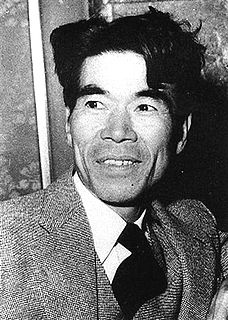A Quote by Eiji Yoshikawa
A wise man who cultivates wisdom may sometimes drown in it.
Related Quotes
It is ignorance that is at times incomprehensible to the wise; for instance, he may not see 'the positive person' or 'the negative person' in a black and white way as many people do. A wise man may not understand it because, as a catalyst of wisdom, but not wise in his own eyes, even he can learn from and give back to fools. To think that an individual has absolutely nothing to offer to the table is counter-intuitively what the wise man considers to be 'the ignorance of hopelessness'.
Much has been said of the loneliness of wisdom, and how much the Truth seeker becomes a pilgrim wandering from star to star. To the ignorant, the wise man is lonely because he abides in distant heights of the mind. But the wise man himself does not feel lonely. Wisdom brings him nearer to life; closer to the heart of the world than the foolish man can ever be. Bookishness may lead to loneliness, and scholarship may end in a battle of beliefs, but the wise man gazing off into space sees not an emptiness, but a space full of life, truth, and law.
No man is so foolish but may give another good counsel sometimes; and no man is so wise, but may easily err, if he will take no others counsel but his own. But very few men are wise by their own counsel; or learned by their own teaching. For he that was only taught by himself had a fool to his master.
Wisdom is a condition of consciousness rather than an attitude of mind. Wisdom is that state of being in which an individual finds himself when realization has tinctured and transmuted all attitudes and opinions. A wise man is one who has experienced wisdom, wisdom in this sense being a mystical experience.
What the essential difference between man and woman is, that they should be thus attracted to one another, no one has satisfactorily answered. Perhaps we must acknowledge the justness of the distinction which assigns to man the sphere of wisdom, and to woman that of love, though neither belongs exclusively to either. Man is continually saying to woman, Why will you not be more wise? Woman is continually saying to man, Why will you not be more loving? It is not in their wills to be wise or to be loving; but, unless each is both wise and loving, there can be neither wisdom nor love.






































